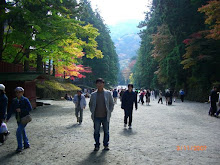The UN Global Compact may be the best way to draw corporations into the development process. Is its optimism justified?
A CERTAIN zeal pervades meetings of the United Nations Global Compact. Not surprising, as its cause is lofty: to harness the power of business to make the world a richer, fairer and cleaner place.
Its modus operandi is deceptively simple: companies agree to adopt ten core principles regarding human rights, labour, environmental and anti-corruption standards, and to report annually on their own progress towards meeting them.
Meanwhile, managers recognise the long-term benefits of paying attention to environmental, human-rights and governance issues—benefits that go beyond defensive public relations. With imagination, and help from NGOs, many firms think they can deliver gains for society beyond their products and services.
Advocates of CSR try making the case on behalf of its extrinsic benefits—arguing that it attracts better recruits, bolsters share price, eases market entry, helps to win licenses and more.
Partnerships between firms and NGOs are springing up. Oxfam, an anti-poverty group, works closely with multinationals such as Unilever.




















